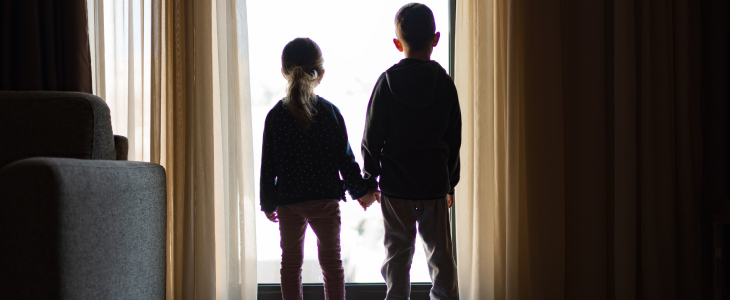Children in foster care can be sexually abused by their foster parents, other adults, or children. Children who have been removed from their homes often face challenges that make them vulnerable to abuse. Understanding the dynamics of this issue is necessary to recognize and address it effectively, as it is essential to ensure the safety and well-being of children in foster care.
What Is Foster Care Sexual Abuse?
Foster care sexual abuse refers to any form of sexual behavior or contact inflicted upon a child in the foster care system. This encompasses a range of misconducts, from inappropriate touching and sexual exploitation to rape. Children in foster care are particularly susceptible to such abuse due to their often unstable and changing living situations, coupled with their dependency on caregivers for security and basic needs. The perpetrators can be foster parents, other adults in the foster home, other children, or other caretakers in the foster care system.
Signs and Symptoms to Watch For
Recognizing the signs and symptoms of sexual abuse in children, especially those in foster care, is crucial for timely intervention and support. Here are key indicators to watch for that may suggest a child is experiencing abuse:
- Behavioral Changes: Sudden shifts in behavior, such as increased aggression, withdrawal, or fearfulness, can be indicators of sexual abuse.
- Physical Symptoms: Unexplained bruises, bleeding, or pain in the genital area are alarming signs that should not be ignored.
- Emotional and Psychological Signs: Symptoms like depression, anxiety, or a sudden drop in self-esteem can hint at underlying trauma, including sexual abuse.
- Fear of Specific People or Places: A child’s excessive fear of certain individuals or reluctance to go to specific locations might signal abuse.
- Sexual Knowledge or Behavior: Displaying sexual knowledge or behaviors inappropriate for their age is a red flag that could suggest sexual abuse.
- Regression in Development: A return to earlier developmental stages, such as bedwetting or thumb-sucking, might be a response to trauma.
- Changes in Academic Performance: A notable decline in school performance or loss of interest in school activities can be a sign of distress related to abuse.
The Impact of Sexual Abuse in Foster Care
The impact of sexual abuse on children in foster care can be profound and long-lasting, affecting every aspect of their lives. These young victims often experience severe emotional and psychological distress, manifesting as anxiety, depression, and post-traumatic stress disorder (PTSD). The trauma from such abuse can lead to difficulties in forming healthy relationships, struggles with self-esteem, and an increased risk of future victimization. In addition, there can be physical consequences, including chronic health issues and developmental delays. The disruption to their sense of safety and trust can have ripple effects, hindering their educational progress and social interactions. Addressing these impacts comprehensively is necessary for the healing and future well-being of these children.
Your Legal Rights and Options
As a victim of sexual abuse in foster care, or as a family member of such a victim, you have specific legal rights and options for seeking justice. First, you may have the right to file a lawsuit against the providers of foster care services who are responsible for the child’s placement and safety. This legal action can lead to compensation for damages suffered due to the abuse, including medical expenses, therapy costs, and pain and suffering. In addition, pursuing a civil lawsuit can serve as a powerful tool to hold the responsible parties accountable and to prevent future incidents of abuse.
Moreover, in some cases, criminal charges may be brought against the perpetrators. While the criminal justice system operates separately from civil lawsuits, it can provide another avenue for seeking justice. You have the right to be informed about the criminal proceedings and, in many jurisdictions, to make a victim impact statement if the perpetrator is convicted.
How We Can Help: Our Approach to Foster Care Sexual Abuse Cases
At Lehrman Law, we are deeply committed to supporting and advocating for victims of foster care sexual abuse. We understand the complexities and sensitivities involved in these cases and we approach each situation with empathy and dedication. Our firm has experience in handling these types of claims, from filing lawsuits to seeking appropriate compensation for the trauma and damages experienced. We prioritize your well-being and confidentiality, providing a safe space for you to share your story and seek justice. All attorneys and staff at Lehrman Law have received training and are certified Trauma Informed Care Legal Professionals, a credential issued by the National Center for Equity & Agency. Our trauma-informed care training helps us to communicate with sexual assault survivors to prevent inadvertent retraumatization, to support healing, and to obtain justice.
Beyond legal representation, Lehrman Law offers a comprehensive support system. We collaborate with mental health professionals to ensure our clients receive holistic care. Our goal is to not only achieve legal success but also to facilitate healing and recovery. We stand by our clients, offering guidance, support, and the assurance that they are not alone in this journey. With Lehrman Law, you gain more than just a legal team; you gain a partnership committed to your recovery and empowerment.
Contact an Experienced Florida Foster Care Sexual Abuse Attorney
If you or a loved one has been affected by foster care sexual abuse, Lehrman Law is here to help. Contact us for a confidential consultation to explore your legal options. We are ready to fight for the justice you deserve.
